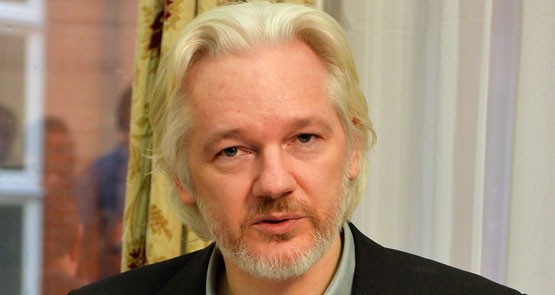
The case of WikiLeaks founder Julian Assange could be about to undergo a radical change, with a UN working group about to announce its findings on whether he has been arbitrarily detained and should be allowed to go free by Sweden and the UK.
If the announcement, scheduled for tomorrow morning (Australian time), goes Assange’s way, it will represent a significant setback for the Swedish and British strategy of leaving Assange in legal limbo for as long as possible since allegations of sexual impropriety were first levelled at him (and initially rejected) in Sweden in 2010.
The Working Group on Arbitrary Detention (WGAD) is a panel of human rights specialists — including Australian Leigh Toomey — that reports to the UN Commission on Human Rights, and handles complaints related to arbitrary detention (it doesn’t address wider issues, or other aspects of investigations related to complaints). Assange submitted a complaint about his confinement to the working group in September 2014. His application hinges on two important aspects.
Firstly, both the UN working group and other bodies like the European Commission on Human Rights have previously found that if a person’s only choice is to leave a place of asylum for a place where they are in danger of refoulement to persecution, then that person is considered “detained”. If Assange leaves the Ecuadorean Embassy in London, he will be immediately arrested by British police, extradited to Sweden (under an arrest warrant process that the British themselves have now amended UK law to remove) and then possibly extradited or rendered to the United States, where an investigation into the leaking of the Chelsea Manning WikiLeaks cables is still actively continuing.
Secondly, the failure of Swedish prosecuting authorities to progress the investigation into allegations against Assange (allegations that the primary complainant has said have been invented by Swedish police) means that Assange has not been provided with any judicial remedy for his detention — indeed, he has now spent over three years longer in detention than the maximum custodial sentence applying to the remaining allegation against him.
As Crikey has previously reported, the Swedes — with the encouragement of the British government — appear to have adopted a deliberate policy of repeatedly avoiding any opportunity to progress the investigation of Assange. Assange is again due to be questioned in coming weeks after the Swedes sabotaged an agreed interview date with him last year, by failing to arrange it with the Ecuadorean government. Whether the prosecutor Marianne Nye, who has repeatedly devised excuses not to interview Assange over the last five years, actually goes through with the interview process this time remains to be seen, particularly given we know the British government actively discouraged them from conducting any interview with Assange.
A WGAD decision in Assange’s favour — which is likely if the working group follows its previous findings on similar cases — would result in a request that the UK and Sweden take steps to ensure his liberty, safety and basic rights. Almost certainly, both the Swedes and the British will use the looming interview as an excuse to decline to do so, arguing that a proper investigation should be allowed to proceed, despite their sabotage of that process over the last five years. The British will likely also argue that Assange broke his bail conditions by fleeing to the Ecuadorean embassy. Even though the European Arrest Warrant process Assange unsuccessfully appealed in British courts has now been removed from British law — i.e. in similar circumstances now, Assange could not be extradited to Sweden from the UK on such a warrant — Assange will still be subject to imprisonment for that breach.
Such a decision would also remove the Australian government’s excuse for politely ignoring Assange’s ongoing detention as purely a matter for the UK, Sweden and the US: an Australian would have been found by a UN committee to have been arbitrarily detained by two countries with whom we have strong relations. Foreign Minister Julie Bishop, who was happy to exploit Assange’s case to criticise Labor when in opposition, will have an important tool with which to approach the British and Swedish governments to effect a resolution to his case.








Crikey encourages robust conversations on our website. However, we’re a small team, so sometimes we have to reluctantly turn comments off due to legal risk. Thanks for your understanding and in the meantime, have a read of our moderation guidelines.